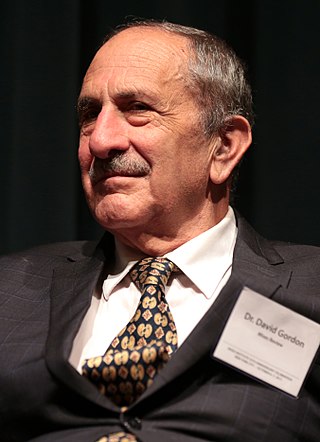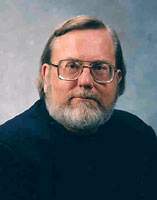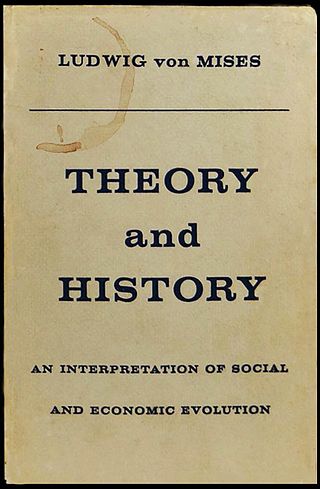Related Research Articles
The Austrian School is a heterodox school of economic thought that advocates strict adherence to methodological individualism, the concept that social phenomena result primarily from the motivations and actions of individuals and their self interest. Austrian school theorists hold that economic theory should be exclusively derived from basic principles of human action.
The economic calculation problem is a criticism of using economic planning as a substitute for market-based allocation of the factors of production. It was first proposed by Ludwig von Mises in his 1920 article "Economic Calculation in the Socialist Commonwealth" and later expanded upon by Friedrich Hayek.

Friedrich August von Hayek, often referred to by his initials F. A. Hayek, was an Austrian-British polymath, whose areas of interest included economics, political philosophy, psychology, and intellectual history. Hayek shared the 1974 Nobel Memorial Prize in Economic Sciences with Gunnar Myrdal for work on money and economic fluctuations, and the interdependence of economic, social and institutional phenomena. His account of how prices communicate information is widely regarded as an important contribution to economics that led to him receiving the prize.

Murray Newton Rothbard was an American economist of the Austrian School, economic historian, political theorist, and activist. Rothbard was a central figure in the 20th-century American libertarian movement, particularly its right-wing strands, and was a founder and leading theoretician of anarcho-capitalism. He wrote over twenty books on political theory, history, economics, and other subjects.

Teleology or finality is a branch of causality giving the reason or an explanation for something as a function of its end, its purpose, or its goal, as opposed to as a function of its cause.
Methodenstreit, in intellectual history beyond German-language discourse, was an economics controversy commenced in the 1880s and persisting for more than a decade, between that field's Austrian School and the (German) Historical School. The debate concerned the place of general theory in social science and the use of history in explaining the dynamics of human action. It also touched on policy and political issues, including the roles of the individual and state. Nevertheless, methodological concerns were uppermost and some early members of the Austrian School also defended a form of welfare state, as prominently advocated by the Historical School.

Hans-Hermann Hoppe is a German-American academic associated with Austrian School economics, anarcho-capitalism, right-wing libertarianism, and opposition to democracy. He is professor emeritus of economics at the University of Nevada, Las Vegas (UNLV), senior fellow of the Mises Institute think tank, and the founder and president of the Property and Freedom Society.

Human Action: A Treatise on Economics is a work by the Austrian economist and philosopher Ludwig von Mises. Widely considered Mises' magnum opus, it presents the case for laissez-faire capitalism based on praxeology, his method to understand the structure of human decision-making. Mises rejected positivism within economics, and defended an a priori foundation for praxeology, as well as methodological individualism and laws of self-evident certainty. Mises argues that the free-market economy not only outdistances any government-planned system, but ultimately serves as the foundation of civilization itself.
In philosophy, praxeology or praxiology is the theory of human action, based on the notion that humans engage in purposeful behavior, contrary to reflexive behavior and other unintentional behavior.
An action axiom is an axiom that embodies a criterion for describing action. Action axioms are of the form "If a condition holds, then the following will be done".

Fritz Machlup was an Austrian-American economist known for his work in information economics. He was President of the International Economic Association from 1971 to 1974. He was one of the first economists to examine knowledge as an economic resource, and is credited with popularising the concept of the information society.
Philosophy and economics studies topics such as public economics, behavioural economics, rationality, justice, history of economic thought, rational choice, the appraisal of economic outcomes, institutions and processes, the status of highly idealized economic models, the ontology of economic phenomena and the possibilities of acquiring knowledge of them.

Ludwig Heinrich Edler von Mises was an Austrian–American Austrian School economist, historian, logician, and sociologist. Mises wrote and lectured extensively on the societal contributions of classical liberalism and the power of consumers. He is best known for his work on praxeology studies comparing communism and capitalism.

A system is a group of interacting or interrelated elements that act according to a set of rules to form a unified whole. A system, surrounded and influenced by its environment, is described by its boundaries, structure and purpose and is expressed in its functioning. Systems are the subjects of study of systems theory and other systems sciences.

David Gordon is an American libertarian philosopher and intellectual historian influenced by Murray Rothbard's views of economics. He is a senior fellow of the Ludwig von Mises Institute, a libertarian think tank, and is the editor of The Mises Review.

Richard von Strigl (1891–1942) was an Austrian economist. He was considered by his colleagues one of the most brilliant Austrian economists of the interwar period. As a professor at the University of Vienna he had a decisive influence on F. A. Hayek, Fritz Machlup, Gottfried von Haberler, Oskar Morgenstern and other fourth-generation Austrian economists.
Austrian Economics Newsletter is a newsletter that was published quarterly by the Ludwig von Mises Institute until Winter 2003. It was established in the Fall of 1977 and published by the Center for Libertarian Studies, but moved to the Mises Institute in 1984. The newsletter covers economics from an Austrian perspective: "Each issue spotlights the writings and research of a scholar or financial journalist who works within the tradition of the Austrian School."

Larry James Sechrest was an American economist who advocated the ideas of the Austrian School. He was a professor of economics at Sul Ross State University and was director of the university's Free Enterprise Institute.

Theory and History: An Interpretation of Social and Economic Evolution is a treatise by Austrian school economist and philosopher Ludwig von Mises. It can be thought of as a continuation in the development of the Misesian system of social science. In particular, it provides further epistemological support for his earlier works, esp. Human Action. Most notably, Mises elaborates on methodological dualism, develops the concept of thymology – a historical branch of the sciences of human action – and presents his critique of Marxist materialism.
In praxeology, methodological dualism is an epistemological position which states that it is necessary ─ based on our current state of knowledge and understanding ─ to use a different method in analysing the actions of human beings than the methods of the natural sciences.
References
- ↑ Lavoie, Don and Storr, Virgil Henry, "Distinction or Dichotomy: Rethinking the Line between Thymology and Praxeology" (January 7, 2011). Review of Austrian Economics, Vol. 24, No. 2, p. 213, 2011. Available at SSRN: http://ssrn.com/abstract=1973646
- ↑ Mises, Ludwig von (1957). Theory and History . New Haven, USA.: Yale University Press. p. 266. ISBN 9780865975699.
- ↑ Mises, Ludwig von (1957). Theory and History . New Haven, USA.: Yale University Press. pp. 271–272. ISBN 9780865975699.
- ↑ von Mises, Ludwig "The Ultimate Foundation of Economic Science"